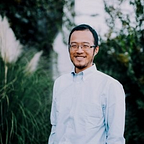#66DaysofData Member Spotlight: Ritobrata Ghosh
This is the fifth in a weekly series spotlighting different members of the 66DaysofData discord community, an initiative started by data scientist and YouTuber Ken Jee. You can find out more about the initiative here and here. The intent of this series is to celebrate those who have made it through the challenge already (although it never truly ends!); share their stories; learn from their successes and failures; and hopefully inspire anybody else walking this path, wherever you happen to be in your journey. If you’re interested in joining the community, you can do so here.
With some people, you can just tell they have a humble passion for knowledge. Ritobrata Ghosh is one of those people for me. One of the things he said early on in our conversation is the simplest evidence of that… and frankly, very few sentiments will ever resonate with me more:
“I was an idiot, and I’m still an idiot now… just more informed.”
The more you know, the more you realize you don’t know!
Currently finishing up a degree in physics, one might say he was exposed to data science merely by chance. In hindsight, it feels like it was virtually inevitable. While Ritobrata found physics incredibly exciting, he observed how theoretical physics is until you’ve accumulated an enormous amount of knowledge and experience. With minimal exception, most of his degree so far has been studying and taking tests; there have been few opportunities to get hands on experience and do things he found meaningful. In contrast, he got his first real taste of exploring and learning by doing in working on electronics, experiencing the work and discoveries of Nobel laureates with his own hands. This experience was instrumental in taking him down a different career path.
He got his first taste of computer science and programming in his first physics lab and quickly fell in love with the power programming gave him. Drawing on the differences between his experience with physics and electronics, he realized that in the field of computer science, you can produce tangible and impactful work in your own home with pretty minimal resources. A real turning point in his career trajectory on that front was when the first-year syllabus at his school changed to include Python. Luckily for him and the newer students to his school, he felt an obligation to help newer students asking him for help. And the second thing that I picked up from our conversation is:
Generosity can often be incredibly powerful, motivating and win-win.
Ritobrata threw himself into Eric Matthes’ Python Crash Course for 6–7 hours a day to help them. This was a year and a half ago. Since then, many people have suggested data science as a potential career (starting with his neighbour, a computer engineer himself) and Ritobrata has found his own niche in the field, aspiring to be a master in the still developing domain of computer vision.
He’s reflected a lot on and learned a lot about the skill of learning, even before starting the 66 Days of Data challenge last fall. Some of these personal lessons include:
- Be careful about what sources of information you follow and learn from. There has been an explosion in people broadcasting their experience and opinions on data science.
- A corollary to the first point: Don’t listen to all the lists out there telling you how you need to learn to get started in data science. Many of them are unnecessarily elaborate and accomplish very little other than discourage you from even starting. You don’t need to know everything before you do anything meaningful.
- Breadth first, then depth when you first start out. Expose yourself to many topics in data science so you can start linking them together and build a more robust web of knowledge. He makes the allusion to building an empire: conquer more land and focus on building out first and building up second.
- Last but certainly not least, data science is not an easy field: don’t expect quick and easy results.
However, an overarching philosophy is the need to be a very hands-on practitioner. Ritobrata emphatically insists that much like learning to play an instrument or a sport, you need to start doing on day 1 and learn the theory as necessary as a means to an end of improving the doing. Throughout his own learning journey and his 66 Days of Data (and beyond), he’s maintained an impressive focus for many hours every day, fueled by his ambitious goals of mastery, intense curiosity and desire to be on the cutting edge of the field. However, he believes this would be impossible without a variety of other hobbies to keep his love for data science, deep reinforcement learning and computer vision alive. When he’s not studying data science, he’s often reading novels, both non-fiction and fiction, in three languages, reciting poetry and learning to play the piano.
It almost seems like Ritobrata has a bottomless well of energy for his pursuits, intellectual or otherwise, and I’m excited to see where he ends up in the future.
You can read more from Ritobrata on LinkedIn, on Twitter and on his own personal blog.
Finally, if you’d like to join a community of data science learners in all stages of the journey, from all kinds of backgrounds, feel free to join the 66DaysofData discord server.
